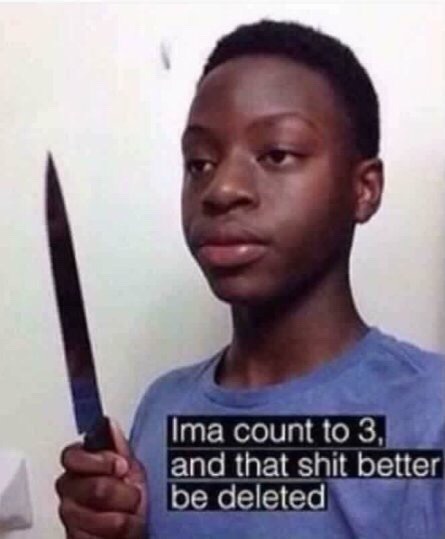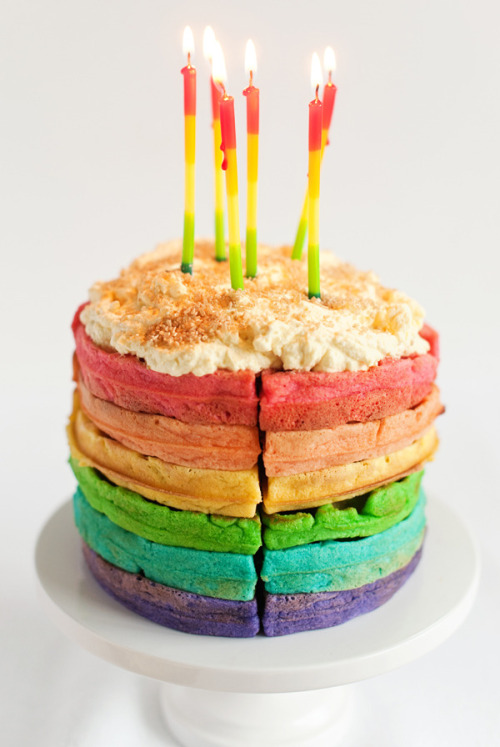Drtanyasinghsworld - What Can U Do? Do What U Can!


More Posts from Drtanyasinghsworld and Others

The best lesson I’ve learned is you can’t let people scare you. You can’t go your whole life trying to please everyone else. You can’t go through life worried about what everyone else is going to think. Don’t let the judgment of others stop you from being you. Don’t lose yourself. #nalielistyle #nalieliseoul (at WWW.NALIELI.COM)
The wave does not need to die to become water. She is already water.
Thích Nhất Hạnh (via purplebuddhaproject)












Rainbow Dessert 🌈
(Recipe 1, 2, 3, 4, 5, 6, 7, 8, 9, 10)
For me, I am driven by two main philosophies: know more today about the world than I knew yesterday and lessen the suffering of others. You’d be surprised how far that gets you.
Neil deGrasse Tyson (via fyp-science)

How to Never Fall Behind in Classes
Alternatively titled: How to Use Your Planner or How Organization and Discipline Will Get You Better Grades
This is my full guide on how to use your planner effectively and make sure that you are never missing deadlines or falling behind in classwork and homework. This is definitely more about the university level and works best with a dated planner, rather than a bullet journal. Let’s get started!
Get all of your syllabi together and write down dates. Go through one class at a time and mark down all of your major tests and assignment due dates. I recommend putting these dates into the monthly and weekly views, and perhaps coming up with a symbol or other indicator that tells you they are of utmost importance.
Make a weekly schedule of when to complete readings and do a weekly review of notes. Instead of trying to randomly decide when to do these things, assign a date for each task for each class. If you have a tutorial on Tuesday, do the assigned readings for it every Wednesday. I recommend scheduling one to two weekly tasks per day, and to leave a few days open, whether it be weekends or days when you have a lot of classes.
Make a master list of assignments. I find that sometimes, even having due dates in the calendar view isn’t enough, and they can still sneak up on you. The master list will be a good place to double check if you have any deadlines approaching easily.
In the week or so before a due date, create a checklist of smaller tasks needed to complete the assignment. Set individual due dates for each smaller task by working backwards from the due date. Smaller tasks may include finding sources, making an outline, writing a rough draft, and editing and adding references to create a final copy. Write the smaller tasks into your daily to-do list.
You can also do this with studying for tests, but the checklist would look slightly different. You could either sort by study method (first do flashcards, then do essay outlines, etc.) or sort by the topics you need to study.
Stick to the schedule you have made. Obviously, if something comes up and you need to move your to-do list around, do so! But if you aren’t doing anything and you see readings on your list of daily tasks.. do them. Having the plan set out like this makes it easier for you to remain disciplined.
Why use this method?
By creating a schedule for repeated weekly tasks like completing readings, you make sure that you can’t repeatedly push off smaller tasks until you are weeks behind. I don’t think it is very reliable to just will yourself to do readings, or to keep up with them without tracking it.
By writing down all of your due dates, you will never be shocked to find out something is due the night before. You will know and you will be prepared.
By creating smaller checklists of tasks to complete before a major test or assignment, you will never find yourself in a situation where you have an essay due in a few days and haven’t even started. You will be following a timeline and making sure you don’t have to rush.
I know this system may seem rigorous, but planning is the only way you can keep on top of your workload in university! Falling behind is a lot harder if you are organized and disciplined, and being on top of your workload will help you a lot when it comes to exam times… no cramming and all-nighters if you have been consistent all semester!










Amaury Guichon - The Pastry Academy


Lighting candles Vs cigarettes smoking Passive smoking Vs oxygen aggressive decline Purity vs virginity Pray Vs Prey Help Vs Self Truth Vs oath
Psychology Book Recommendations
Foundational Authors & Works
Carl Rogers, On Becoming a Person
B. F. Skinner, Beyond Freedom and Dignity and About Behaviorism and Walden Two
Viktor Frankl, Man’s Search for Meaning
Sigmund Freud, Civilization and its Discontents
John Norcross (editor), Evidence-Based Practices in Mental Health
Psychopathology & Diagnosis
David Barlow (editor), Clinical Handbook of Psychological Disorders
Oliver Saks, Hallucinations
Kelly Lambert, Clinical Neuroscience
Criticisms & Controversial Topics
Stephen Hinshaw, The ADHD Explosion
Robert Whitaker, Mad in America and Anatomy of an Epidemic
Ronald Miller, Not So Abnormal Psychology
Allen Frances, Saving Normal
Bruce Wampold, The Great Psychotherapy Debate
Therapy Theories
Carl Rogers, Client-Centered Therapy
Irvin Yalom, The Theory and Practice of Group Psychotherapy
Aaron Beck, Cognitive Therapy of Depression
Steven Hayes, Acceptance and Commitment Therapy
Judith Beck, Cognitive Behavioral Therapy
Danny Wedding, Current Psychotherapies
William Miller, Motivational Interviewing
Jacqueline Person, Cognitive Therapy in Practice
Evidence-Based Therapy Manuals
Marsha Linehan, DBT Skills Training Manual and Cognitive Behavioral Treatment of Borderline Personality Disorder
Michelle Craske, Mastery of Your Anxiety and Panic
David Burns, Feeling Good
Richard Zinbarg, Mastery of Your Anxiety and Worry
Martha Davis, The Relaxation and Stress Reduction Workbook
Lisa Najavitis, Seeking Safety
Expert Therapist Perspectives
Irvin Yalom, The Gift of Therapy and Love’s Executioner
First Person Perspectives
Kay Jamison, An Unquiet Mind
Elyn Saks, The Center Cannot Hold
William Styron, Darkness Visible
Carolyn Spiro and Pamela Spiro Wagner, Divided Minds
Research Design & Analysis
Alan Kazdin, Research Design in Clinical Psychology and Single-Case Research Designs
John Creswell, Qualitative Inquiry and Research Design
Culture & Diversity
Derald Wing Sue, Counseling the Culturally Diverse and Case Studies in Multicultural Counseling and Therapy
Stigma
Stephen Hinshaw, Breaking the Silence and The Mark of Shame
Grad School and Careers in Psychology
Peggy Hawley, Being Bright is Not Enough
Adam Ruben, Surviving Your Stupid, Stupid Decision to Go to Grad School
Peter Feibelman, A PhD is Not Enough
Paul Silva, How to Write A Lot
Karen Kelsky, The Professor Is In
-
 forestbarbie reblogged this · 1 month ago
forestbarbie reblogged this · 1 month ago -
 forestbarbie liked this · 1 month ago
forestbarbie liked this · 1 month ago -
 loda0 liked this · 2 months ago
loda0 liked this · 2 months ago -
 gabsme reblogged this · 3 months ago
gabsme reblogged this · 3 months ago -
 elenilimnaiou reblogged this · 3 months ago
elenilimnaiou reblogged this · 3 months ago -
 dreamsofcherryflavor liked this · 6 months ago
dreamsofcherryflavor liked this · 6 months ago -
 incure liked this · 10 months ago
incure liked this · 10 months ago -
 lifesfullofchances liked this · 10 months ago
lifesfullofchances liked this · 10 months ago -
 exsanguinus liked this · 11 months ago
exsanguinus liked this · 11 months ago -
 di-anthos liked this · 11 months ago
di-anthos liked this · 11 months ago -
 apilgrimsprogress reblogged this · 11 months ago
apilgrimsprogress reblogged this · 11 months ago -
 katgrey14 reblogged this · 1 year ago
katgrey14 reblogged this · 1 year ago -
 oldadventuringsoul reblogged this · 1 year ago
oldadventuringsoul reblogged this · 1 year ago -
 souljourneysblog liked this · 1 year ago
souljourneysblog liked this · 1 year ago -
 thedreamersgrace reblogged this · 1 year ago
thedreamersgrace reblogged this · 1 year ago -
 fruitfulbritty reblogged this · 1 year ago
fruitfulbritty reblogged this · 1 year ago -
 foohgawz liked this · 1 year ago
foohgawz liked this · 1 year ago -
 bonomovesinmysteriousways liked this · 1 year ago
bonomovesinmysteriousways liked this · 1 year ago -
 yenosiria reblogged this · 1 year ago
yenosiria reblogged this · 1 year ago -
 joypics liked this · 1 year ago
joypics liked this · 1 year ago -
 fearless-life-explorer liked this · 1 year ago
fearless-life-explorer liked this · 1 year ago -
 weirdograph liked this · 1 year ago
weirdograph liked this · 1 year ago -
 extuhesmulym liked this · 1 year ago
extuhesmulym liked this · 1 year ago -
 choosejoyangel liked this · 1 year ago
choosejoyangel liked this · 1 year ago -
 hiswillbedone reblogged this · 1 year ago
hiswillbedone reblogged this · 1 year ago -
 samplanpaicul liked this · 1 year ago
samplanpaicul liked this · 1 year ago -
 charmingidealization reblogged this · 1 year ago
charmingidealization reblogged this · 1 year ago -
 revolverthemes liked this · 1 year ago
revolverthemes liked this · 1 year ago -
 myallisthine reblogged this · 1 year ago
myallisthine reblogged this · 1 year ago
